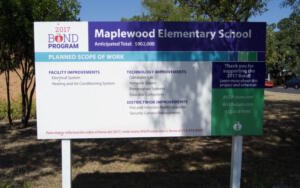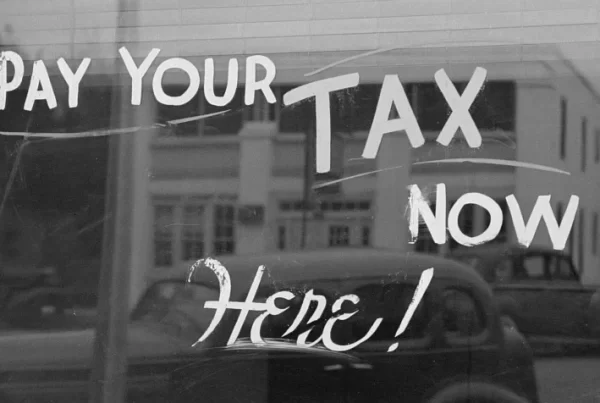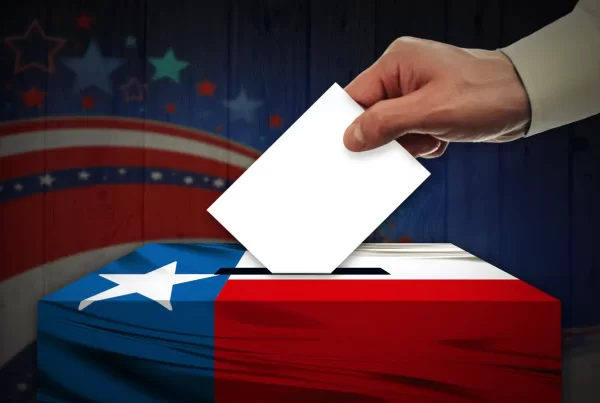Purpose of Bond Elections
A bond election in Texas allows voters to decide whether a local government may borrow money for a specific purpose. Cities, counties, and school districts use bond debt to finance new schools, highways, bridges, bikeways, fire stations, parks, and other infrastructure.
A bond is a debt security (a type of long-term loan) issued by a local government and bought by investors in exchange for a promise of future repayment and interest. Because bonds spread repayment over decades, they allow local governments to undertake large-scale projects that would be impossible to fund from annual budgets alone.
Local governments in Texas typically repay bond debt through ad valorem tax (property tax). This tax is pledged against the debt, and voter approval is required for any bond supported by taxes.1 Because these bonds involve tax increases, the election also serves as a tax rate approval.
Advertisement
Ordering a Bond Election
The governing body of a political subdivision—such as a city council or school board—has the authority to order a bond election.2 A majority vote of the governing body is sufficient to call the election.
The governing body must adopt an election order at least 78 days before the election date. The order must specify the purpose of the bond, the maximum amount to be borrowed, and the estimated tax implications for property owners.3 Failure to comply with statutory notice or timing requirements can invalidate an election, making careful legal preparation essential.
Conduct of Bond Elections
Bond elections in Texas are governed by the same laws as general elections, with certain differences involving notice requirements and the timing of the election. A bond election must take place on a uniform election date, that is, in May or November.
High-profile bond elections often attract organized campaigns both for and against the proposal, with supporters emphasizing community investment and opponents raising concerns about tax burdens. Turnout can vary widely, with school district bond elections sometimes decided by only a few percentage points.
Texas law requires clear and specific wording for bond election propositions. Each ballot must include:
- A statement indicating that taxes may be increased to repay the debt.
- The total principal amount of bonds to be issued.
- A description of the project(s) or purpose(s) for which the debt will be used.4
Texas courts have struck down ballot propositions deemed too vague, underscoring the importance of precise language. For example, a school district bond proposition might read: “The issuance of $20,000,000 of bonds by the ABC Independent School District for the construction and renovation of school facilities, and the levying of a tax to pay for the bonds.”
Voters in a bond election cast ballots for or against the proposition. A simple majority—more than 50% of the votes cast—is sufficient to authorize the issuance of bonds.
Election officials must follow procedures outlined in the Texas Election Code, including rules for early voting, vote-by-mail, polling places, and accessibility.
Legal Restrictions
Texas law places clear limits on when and how local governments can issue bond debt. A political subdivision—such as a city, county, school district, or special district—must have express legal authority to hold a bond election and issue bonds.

Various bond authority is granted within specific chapters of the Texas Government Code, Texas Local Government Code, and Texas Education Code.5 These laws define the types of bonds that may be issued (e.g., general obligation bonds), the purposes for which bonds may be used, and the maximum debt limits or repayment periods.
In general, bond funds can only be used for capital improvements and other long-term investments. Common eligible uses include:
- Constructing or renovating public buildings (e.g., schools, courthouses, libraries)
- Building infrastructure such as roads, water systems, or fire stations
- Purchasing land, school buses, or major equipment
Bond proceeds may not be used for recurring expenses like salaries, maintenance, and other operational costs. This distinction reflects the principle that bonds should finance durable assets, not recurring expenses that belong in annual operating budgets.
Advertisement
Issuance of Bonds
If voters approve the proposal, this does not automatically trigger the sale of the bonds. That occurs later, and may take place at various times and with various rates of interest, depending on private debt market conditions.
Once voters approve a bond proposal, the issuing entity works with financial advisors and underwriters to determine the best time to sell the bonds. The interest rate on bonds is influenced by the local government’s credit rating, market demand, and the broader economy. Public entities often also hire a bond lawyer to provide legal opinions confirming that the bonds comply with constitutional and statutory requirements.
Bonds may be issued in phases (called tranches) depending on the scope of the project, funding needs, and bond market conditions.
Additional Resources
Voters can learn more about proposed and approved bonds from their own local governments. Additionally, the Texas Bond Review Board maintains a database of bond elections held from 1997 to the present.



